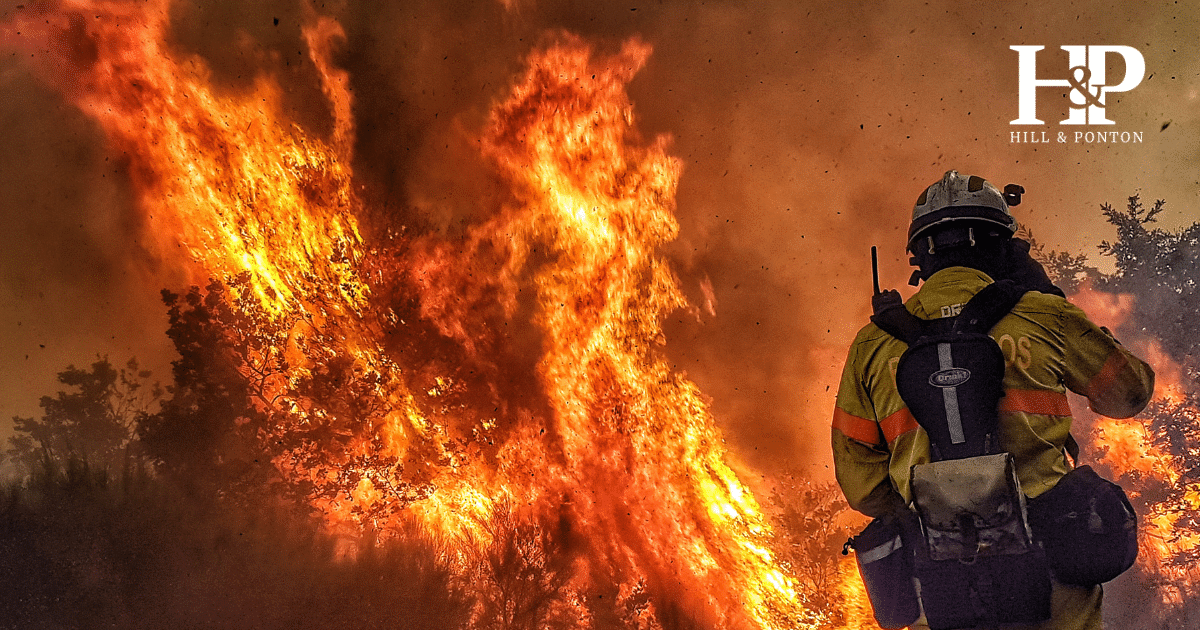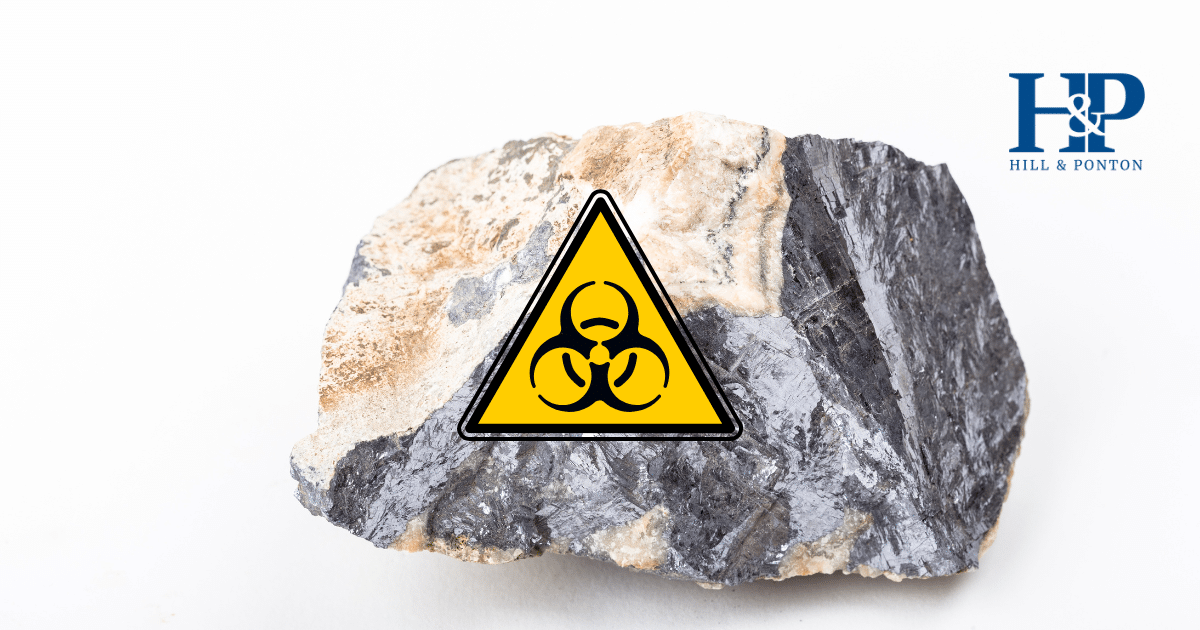Aqueous Film-Forming Foam (AFFF) has been widely used in firefighting, particularly by military firefighters, due to its ability to extinguish fires involving hazardous flammable liquids. However, this firefighting foam contains toxic chemicals known as PFAS (per- and polyfluoroalkyl substances), often referred to as “forever chemicals” because of their persistence in the environment and human body. Exposure to AFFF has been linked to serious health issues, including certain cancers and immune system disorders.
If you’re a veteran who may have come into contact with firefighting foam and are interested in VA claims for exposure to AFFF, this guide will help you understand the health risks, VA claims process, and additional legal options available.
Health Risks Associated with AFFF Exposure
Cancers Linked to PFAS Exposure
PFAS exposure from AFFF has been strongly associated with several types of cancer, which can have life-altering effects on veterans and their families. These cancers may qualify for VA disability benefits if they are service-connected. For detailed information about how the VA rates different cancers, visit our Cancer VA Ratings Guide.
- Kidney cancer
- Testicular cancer
- Prostate cancer
- Liver cancer
- Pancreatic cancer
- Bladder cancer
Other Health Conditions
In addition to cancer, PFAS exposure has been linked to a variety of chronic health issues that may significantly impact veterans’ daily lives. Many of these conditions can qualify for VA disability benefits if properly documented and service-connected.
- Thyroid disorders (e.g., Graves’ Disease, Hashimoto’s Disease)
- Immune system disorders
- Elevated cholesterol levels
- Fertility issues and pregnancy-induced hypertension
- Hormonal imbalances
- Liver damage
These health effects may take years to develop, so it’s critical to monitor your health and seek medical advice regularly if you suspect AFFF exposure during military service.
Filing a VA Claim for AFFF Exposure
The VA claims process for AFFF exposure involves demonstrating a clear connection between your health issues and your military service. Follow these steps:
Step 1: Establishing Service Connection
To qualify for VA disability benefits, you’ll need to establish a service connection by providing:
- Military Service Records: Demonstrate firefighting duties or stationing at contaminated sites where AFFF was used.
- Medical Records: Provide diagnoses of PFAS-related illnesses from licensed medical professionals.
- Nexus Letter: Obtain a letter from a physician linking your condition to AFFF exposure during service.
Step 2: Filing Your Claim
Submit your claim using VA Form 21-526EZ, which includes:
- A detailed description of your exposure to firefighting foam
- Supporting documents like military and medical records
- A nexus letter explaining the connection between your condition and AFFF exposure
Step 3: Responding to VA Requests
The VA may request additional evidence, such as clarifying documents or an updated medical opinion. Be prepared to provide these promptly and attend any Compensation and Pension (C&P) exams requested by the VA.
Step 4: Handling Denials
If your initial claim is denied, don’t lose hope. Many veterans succeed in appeals by strengthening their case with additional evidence or seeking assistance from a VA disability attorney or Veterans Service Organization (VSO).
Overcoming Common Challenges in AFFF Claims
No Presumptive Conditions for AFFF
Currently, there are no presumptive conditions tied to AFFF exposure in the VA system. This means veterans must rely on service-connected evidence to prove their claims. Keep an eye on new research and legislative changes that may expand presumptive conditions for PFAS-related health problems.
Proving AFFF Exposure
Documenting your exposure to AFFF is key to building a strong case. Gather:
- Training or duty records showing involvement with firefighting foam
- Statements from fellow servicemembers who can verify your exposure
- Assignment records for locations like Camp Pendleton, Fort Bragg, or other PFAS-contaminated bases
Using tools like our Toxic Exposure Map can help identify contaminated locations and provide additional context for your claim.
Additional Options: Filing an AFFF Lawsuit
Besides pursuing VA benefits, veterans exposed to AFFF may qualify for lawsuits against manufacturers of firefighting foam. These lawsuits aim to hold companies accountable for the harmful health effects caused by PFAS chemicals.
What Compensation Can You Receive?
Lawsuits often seek damages for:
- Medical expenses
- Pain and suffering
- Lost wages and diminished earning capacity
- Emotional distress
Who Is Liable?
Major manufacturers like 3M and DuPont have faced lawsuits alleging they knowingly produced and distributed toxic PFAS chemicals. Veterans who worked directly with firefighting foam or served at contaminated sites are eligible to join these legal actions.
Steps to File a Lawsuit
To pursue an AFFF lawsuit, veterans should:
- Consider working with an experienced toxic exposure attorney to navigate the legal process.
- Document their exposure using military service records and training materials.
- Obtain medical records diagnosing health conditions linked to PFAS exposure.
Environmental Impact of AFFF
AFFF contamination isn’t limited to military bases. PFAS chemicals leach into surrounding soil and drinking water, posing long-term risks to nearby communities. Some of the most affected military installations include:
- Camp Pendleton
- Fort Bragg
- Joint Base McGuire-Dix-Lakehurst
- Naval Air Weapons Station China Lake
If you served or lived near one of these locations, it’s essential to monitor your health closely.
See a full list of military bases that have been affected by toxic exposure and contamination problems using our military toxic exposure map.
Strengthening Your VA Claim or Lawsuit
Documenting Exposure
Identify locations and duties where AFFF was used during your military service. Understanding what chemicals and other toxic materials you might have been exposed to on your base through proper documentation will help prove the connection between exposure and your condition.
Providing Medical Evidence
Ensure your medical records are detailed and include a clear diagnosis of PFAS-related conditions. Scientific studies and expert opinions connecting your condition to AFFF exposure can further strengthen your case.
Get Help with Your AFFF Claim
AFFF exposure cases are complex and veterans who developed health conditions from having served in firefighting roles, at contaminated bases or training facilities where AFFF was used may have difficulty proving their claims. At Hill & Ponton, we’ve dedicated decades to helping veterans appeal VA denials or increase their disability ratings. Contact us today for a free case evaluation or call 1-888-477-2363 to speak with our team.
Frequently Asked Questions
Can I file a VA claim for AFFF exposure without a cancer diagnosis?
Yes, non-cancer conditions like thyroid disorders or immune system dysfunction may also qualify for VA disability benefits.
How long does it take to process a VA claim?
Most VA claims take 120+ days to process, but complex cases may take longer. Promptly responding to requests for additional evidence can help expedite the process.
Can I file an AFFF lawsuit and a VA claim?
Yes! VA claims and lawsuits are separate processes. Filing both can maximize your compensation.
Get Help With Your AFFF Claim
Navigating the complexities of AFFF claims and lawsuits can be overwhelming. At Hill & Ponton, we’ve spent decades helping veterans secure the compensation they deserve. Contact us today for a free case evaluation, or call 1-888-477-2363 to speak with our experienced team.




